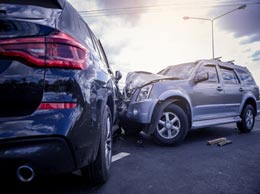
Are my custom parts covered?
Modifications you make to your car like custom speakers, rims, and other non-factory upgrades are not covered by insurance unless you add a special endorsement to your policy. With most insurers, the endorsement you need is called Custom Parts & Equipment (CPE) coverage, which covers any non-factory upgrades you may have made to the vehicle.
The following are a few examples of items CPE covers:
- Sound systems
- Rims
- Custom spoilers
- Lift kits
- Paint jobs
I only want name-brand parts as my car is getting repaired. Is there coverage for that?
Most insurance contracts are written to repair a vehicle with “like kind and quality” parts, but they are not required to use the same exact parts that the factory used to build the vehicle. This becomes problematic when you have a luxury or leased vehicle, where maintenance is done strictly by the dealership and they are more rigid on what parts they are willing to use to make repairs. Sometimes you may have to pay the difference between what the insurance company would pay for the replacement parts and what the dealership charges for original factory parts.
How do you avoid this happening to you? Thankfully, most car insurance carriers offer an endorsement called Original Equipment Manufacturer Parts coverage, or OEM coverage for short. If you add this coverage, you will be reimbursed up to the full cost of replacing parts with those that were used originally in the factory.
For example, imagine you have a new Jeep and accidentally back into a post, denting your bumper. You file a claim, and the dealership wants $2,800 for the part because you own a special-model Jeep. Your insurance carrier can find a non-Jeep replacement part for $1,200. Your deductible is $500. Without the OEM endorsement, your insurance provider will pay $700 for the replacement part after your deductible. With the OEM endorsement, your insurance provider will $2,300 for the original Jeep part after your deductible.
An OEM endorsement is normally cost-effective, so ask your agent if this is something they recommend for your vehicle.
What's the best type of insurance coverage for collector and classic vehicles?
The best way to protect a collector or classic car is to have them on their own special classic car policy. Most normal car insurance policies only pay claims on an actual cash value basis, meaning the older the car, the less you will get paid when you damage the vehicle. This is an issue with a classic or collector car, where the value comes from how rare it is, not because of it’s age.
There are special policies designed solely for classic and collector cars. On these classic car policies, you can get an agreed value for your vehicles so that in the event of a total loss, you are not out thousands of dollars due to depreciation because of the age of the vehicle.
For example, imagine your fully restored 1966 Ford Mustang valued at $50,000 is stolen. A standard auto policy would depreciate it due to its more than 50-year age and pay you a few thousand at best. A classic car policy with an agreed value of $50,000 would pay you the full amount of your car, minus your deductible.
To qualify for a classic car policy, your need to meet the following criteria:
- The vehicle has an annual mileage of 2,000 miles or less
- You have a separate vehicle for everyday use to commute to work or school
- The vehicle has very low miles or is in short supply
- Your driving history is free of serious violations or other claims
If you qualify for a classic car policy, CPE coverage, or an OEM endorsement, reach out to your Goosehead agent today to learn more about insuring your unique car properly.
The contents of this article are for informational purposes only. You should not act or refrain from acting based on this information without first consulting a Goosehead licensed agent. We disclaim all liability for actions taken or not taken by you based on the contents of this article which is provided "as is." Goosehead makes no representation that this content is error-free.


